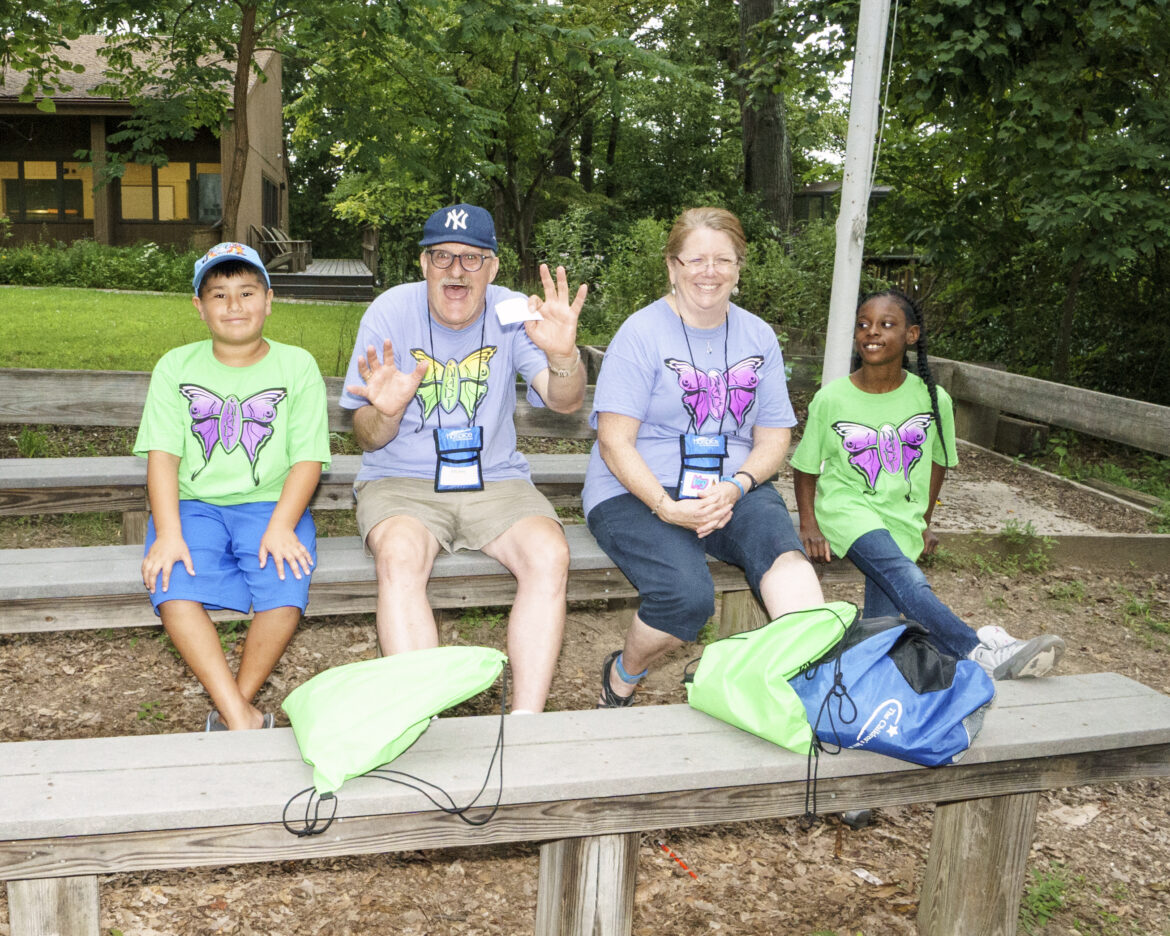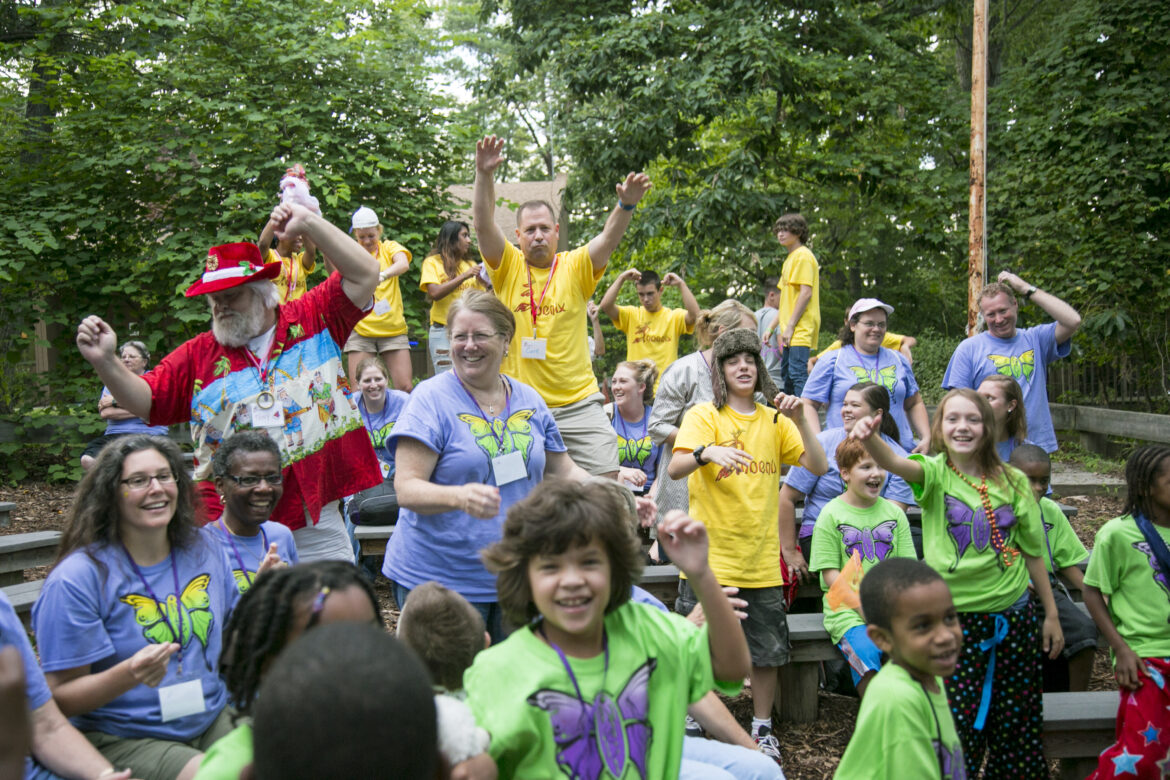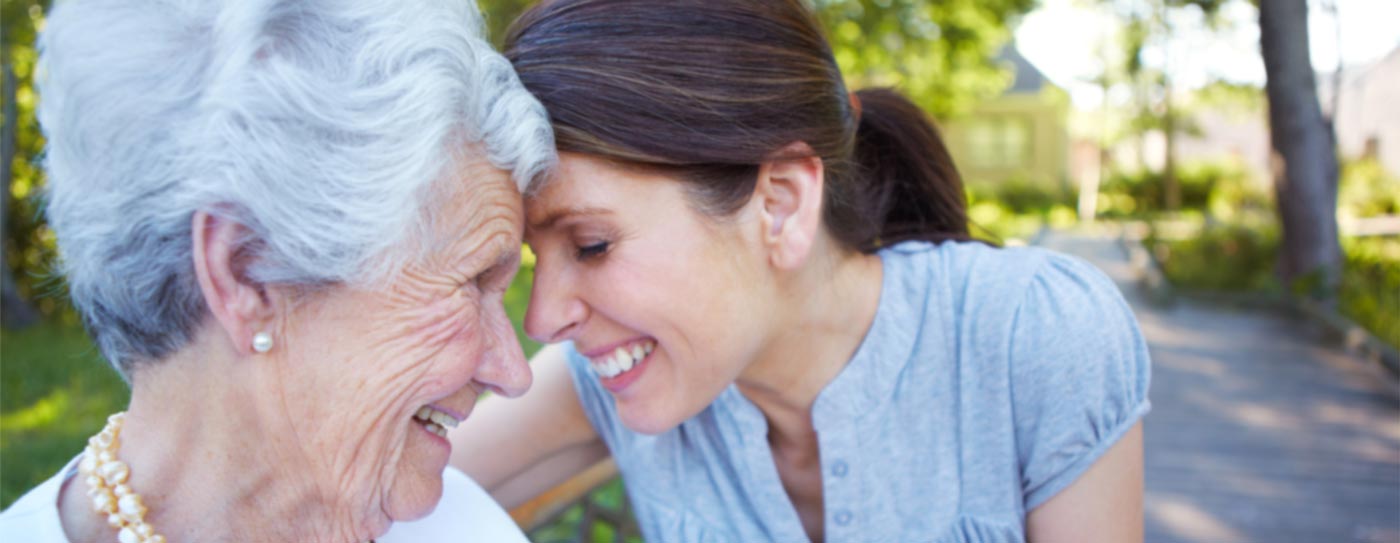
Longtime volunteer Mickey Cook, second from left, hams it up for the camera to the smiles of two campers and a fellow counselor while at Camp Nabi in 2017. Photo by Jim Finnerty
One summer, a boy came to Camp Nabi so traumatized by the loss of his father, he suffered from selective mutism. He had the ability to speak, but not in certain settings, like school or – the family and counselors suspected – grief camp.
“He was big into origami,” longtime camp volunteer Mickey Cook said. He noticed the 9-year-old working on a piece and asked him to show him how to do it. He played dumb and kept asking him, and the boy would silently show him. One more time he said, “I don’t get it. Is this the way you do it?” The boy quietly said, “No, you gotta do it this way.” He quietly and privately talked Cook through several origami pieces into the first night.
The next day, the boy and Cook were teamed up to do a trust exercise. One would be blind folded while the other would shout out directions to the other to get through an obstacle course. Cook had his doubts, so he gave the directions first. When it was the boy’s turn, he spoke up loud and clear and led Cook through the course. “His counselor and his brother were in tears. He felt safe enough and confident enough,” Cook said. “After that, it was all camp for him.”
Cook has many remarkable stories as a 15-year veteran of volunteering at grief camps. He was overjoyed to learn they were coming back this August. He is not alone. “I love, love, love camps,” said Brian Berger, Vice President of Care Continuum said. His own experience with grief camps throughout his career is a key factor for its return. “There is something that’s really awesome about overnight camps,” he said. “Sharing a space together uninterrupted for the weekend really adds to the support, the tools, the strength they take away when camp is done. There’s a bit of a magic that happens by them being able to stay in that space of support from beginning to end.”
Berger said the camp program will be familiar to volunteers and facilitators who participated in the program that ran for 27 years up until 2018. Just as it was previously, it will be held at the Arlington Echo Outdoor Education Center. And just as in years past, the goal is for kids experiencing loss to have fun. “The kids will go swimming, do low ropes course, the kind of things people expect from an overnight camp,” Berger said.
There is something that’s really awesome about overnight camps. Sharing a space together uninterrupted for the weekend really adds to the support, the tools, the strength they take away when camp is done.
Hospice of the Chesapeake has expanded since the last overnight camp. This growth has Berger and his team planning transportation to and from our offices in Anne Arundel, Charles, Calvert and Prince George’s counties so any grieving child in the communities we serve can participate.
Berger is buoyed by the community’s desire to help. “These camps take a lot of support, both financially and through team members and volunteer participation. It feels great to be confident in knowing that we will be able to draw the funding and volunteer support that we need to be able to help kids and teens who are hurting find friendship and healing.”

Campers and counselors get silly during a grief camp activity at Camp Nabi.


